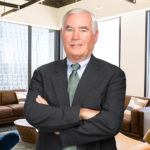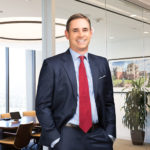

The experts in the field — and on the streets — on solutions in 2023
With little hope for any measurable near-term improvement, the homelessness crises around the U.S. are set to overshadow any economic recovery in the nation’s densest regions.
It’s at the point that, as her first move as leader of Los Angeles, Mayor Karen Bass in December declared a state of emergency, which was quickly approved by the city council, to bolster the ability of the nation’s second-largest city to get people off the streets. The order gives Bass the power to lift regulations that slow or prevent permanent and temporary housing developments, and it allows the city to acquire rooms, properties and land for housing.
While Los Angeles remains ground zero for homelessness in America, the problem spreads well beyond Southern California. There are an estimated 7,750 people experiencing homelessness in San Francisco — a city with a total population of about 815,200 people. In New York City, homelessness has hit the highest levels since the Great Depression, according to Coalition for the Homeless, a charity, after 102,660 people stayed in the shelter system throughout 2022. That figure does not include the people sleeping on streets, in cars or on friends’ floors.
Nationwide, it’s difficult to find consensus figures, particularly after the pandemic halted large-scale efforts to collect data. As of January 2020, there were an estimated 580,500 people experiencing homelessness in the U.S., according to The National Alliance to End Homelessness, but the crisis is widely believed to have been exacerbated by the COVID-19 pandemic and record levels of inflation, much of which is fueled by rising apartment rents.
Commercial Observer sought out housing and real estate experts to get reactions to L.A.’s state of emergency, and to ask the big question: What should we do about this?
Commercial Observer: What’s your general reaction to a city like L.A. declaring a state of emergency over the homelessness crisis?
Sean Burton,CEO of multifamily development firm Cityview:
I think it’s a great idea. [Bass] campaigned on the idea of declaring a state of emergency on day one as mayor so that she would have more powers to make decisions and execute on them quickly. It’s also a signal to everyone in city government that addressing homelessness is job one. The declaration is just a starting point. Now the hard work needs to happen.
Will Herbig, head of the Homeless to Housed initiative for Urban Land Institute:
There is a homeless crisis that is perpetuated by growing unaffordability of the housing market due to restrictions such as zoning, setbacks, density regulations that just simply are making housing production difficult and in some cases unattainable.
It requires new solutions, new approaches, innovative thinking and more attention to the issue.
Sonnet Hui, general manager and vice president at Project Management Advisors, which is heavily involved with the Weingart Center Tower, a 382-unit permanent supportive housing (PSH) development in L.A.’s Skid Row:
There has been a long history of policies like redlining, and the deinstitutionalization of medical asylums, and other covenants that created this crisis. And I think the pandemic has only made the situation worse. … People need to understand how complex the issue is and how it has taken 50 to 60 years to get to this point, so it’s going to take a long time to resolve.
Tom Bagamane, chairman and founder of nonprofit The Giving Spirit:
I think [Bass’ move] is long overdue, and I’m glad that she took those major steps. … For the last year, there’s been so much rhetoric around “housing first” — and I don’t want anyone to think we’re not a big proponent of PSH: a roof is the ultimate solution for anyone who’s out there on the streets. But there’s so many other things that need to be addressed before that person can concede to housing.
What else needs to be done? Are there proven strategies that should be implemented?
Steve Glenn, CEO of modular construction firm Plant Prefab, a developer of prefabricated homes:
Big picture, it’s really expensive to build anything. Land costs aren’t going to go down — they are what they are. So we’re really talking about, “What can you do to make the construction process more efficient?” Material costs are what they are. Maybe you can get creative with the materials. But, if you can make the construction process more efficient, that’ll help you get housing completed on a faster schedule, and potentially for lower costs. That’s our focus.
More and more construction in this country is moving off-site, including affordable housing. What people are finding is that by working with a prefabricated method versus the traditional site-based method, you can save time and create greater reliability for scheduling. Sometimes, you can save money, not always.
Sonnet Hui:
It has to be multi-pronged and address the root causes of homelessness. … We have to provide access to mental health services. There needs to be access to drug treatment. …
Building high-density, PSH projects with wraparound services in areas where there’s a high concentration of homelessness is probably step one. Weingart facilities provide a host of programs — everything from addiction to mental health to physical health programs, job training, debt reduction programs. And the goal really is to break the cycle of homelessness.
Sean Burton:
One strategy that works is master-leasing hotels and motels, and moving the unhoused in immediately to allow the city to clear the biggest encampments and to get people off the street. …
But to solve homelessness in the long run, we need to build hundreds of thousands of new housing units over the next few years — for the homeless — but also government-subsidized affordable housing and critical workforce and market-rate housing for everyone else. Fundamentally, this is a supply and demand problem. We simply have fallen far short of our obligations as a city and region to build the housing necessary to address homelessness and housing affordability.
Will Herbig:
There is not a one-size-fits-all solution to the growing crisis of homelessness. There’s a spectrum. There are those that are chronically homeless and require a great degree of wraparound services. And then there are simply those that are ‘nearly unhoused.’ They are one paycheck away. They’re one rent payment away from being unsheltered and unhoused. You have got to tackle the crisis at both ends of the spectrum. … There’s people in L.A. and in the Bay Area that may be professional workers that actually don’t have a home. They are going to a job every day and they are maybe living in a van or in a car and still making it to work.
At ULI, we recently launched the Homeless to Housed initiative, and we’re beginning to look at what is the responsibility of the commercial real estate industry, the land development industry, in tackling this issue because it shouldn’t be left up to elected officials and policymakers. It really requires a partnership of local leaders, developers, and land use professionals to tackle this collectively.
We’re beginning to spotlight the best practices, and we published earlier this year a report called Homeless to Housed that identifies eight innovative solutions to addressing homelessness across that spectrum. … And we’re going to be rolling out three to four additional spotlights of best practices every six months to inform our members which are primarily land use and real estate professionals across the United States and beyond.
What are the main obstacles?
Steven Glenn:
It’s just expensive for anyone to build anything in expensive areas. In particular, you’ve got high labor costs and scarcer labor — a lot of construction labor that left during the downturn from 2008 to 2012, they never came back.
Sonnet Hui:
We see a lot of nonprofit developers who build PSH, but they’re usually small-scale: it’s 50 units here, 60 units there. I mean, we’re talking just in the city of L.A. alone I think it’s 42,000 individuals who are experiencing homelessness. So, 50 to 60 units, that’s like a drop in the bucket. Even the Weingart towers … it’s still a small portion of the problem.
In California and L.A., the challenge is always land costs, and then we have the most complicated and convoluted processes to build anything. From a political point of view, if they can streamline the processes: [California Environmental Quality Act], permitting and updating zoning codes, then you can get housing — not just PSH, but housing at all levels: affordable housing, market-rate housing, luxury housing, so there’s options and variety.
Usually, funding comes through a host of different sources: local, state and federal. The problem with that is usually the local requirements are different from the state, and they’re different from federal. Then you need someone to manage the process because you don’t want to lose the funding source or miss a deadline … so you actually end up spending more time and energy on managing all the various financing sources. And sometimes, PSH is more expensive to build that market-rate housing because there’s so many layers of requirements.
Tom Bagamane:
It’s tough for people to understand, but for as long as this has been a problem, it’s going to take time for improvement. Taking a blanket and just throwing it over L.A. County — with 70,000 people experiencing homelessness — and saying, “Let’s fix it by getting everybody under the blanket” — you can’t do that. Each individual is unique, and if we don’t look at them that way, then how are they ever going to trust us?
Will Herbig:
A big part of homelessness is it’s not just a social service or mental health crisis. It is a housing production crisis. … Our housing production numbers have not kept pace with our population growth. … What would traditionally have been naturally occurring, affordable housing gets gobbled up and redone by developers and turned into luxury condos. It’s fewer units in the pipeline that are affordable, and then there’s nowhere else to turn.
What else can or should the commercial real estate community do to help?
Sean Burton:
Build as much housing as they can at all levels. … We should also support government programs that help the neediest get the services they need. The mayor can’t solve this alone. This will require an all-hands-on-deck approach.
Also, communities often are frustrated with the homeless population and encampments in their neighborhoods, but then vigorously oppose any new housing — homeless or otherwise — that is proposed to be built near where they live. As a city, we need to support new housing projects — of all levels — to get the unhoused off the street, to clean up our encampments, and to create a Los Angeles where everyone has the opportunity to succeed.
Read more: https://commercialobserver.com/2023/01/whats-next-for-americas-homelessness-crisis/
























